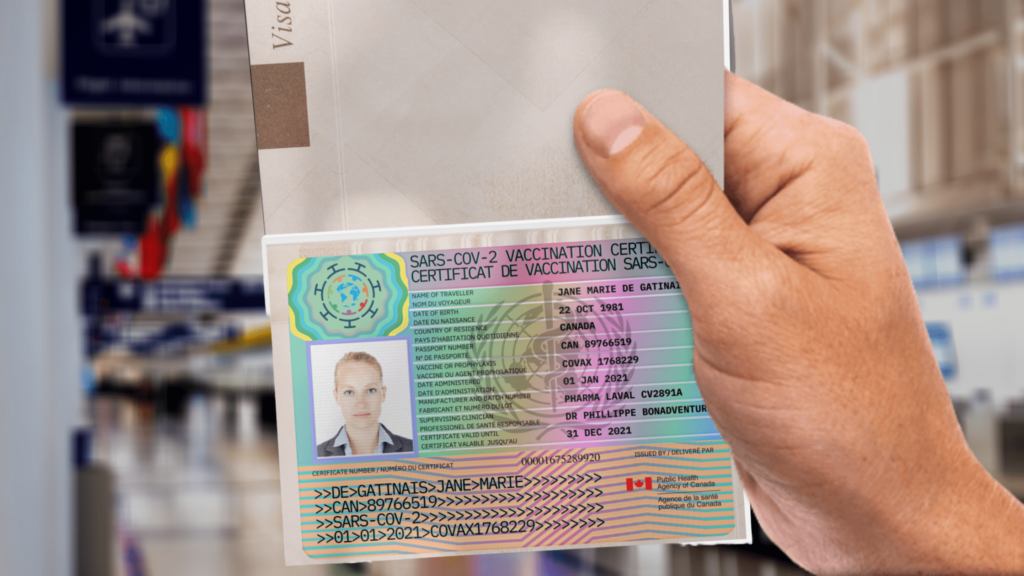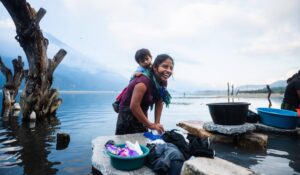For many years, tourism industries around the world had been looking forward to the symmetry of 2020 and making revolutionary travel trends. In Australia, tourism chiefs had all been set Tourism 2020 targets and, once mostly achieved, began planning for Tourism Beyond 2020. In the United States, state tourism boards also achieved their 2020 mission set earlier in the century of having a national tourism board, Visit The USA, thus closing another chapter of American exceptionalism. Few forecasters (this author included*) could have predicted that 2020 was actually going to be ground zero again for the tourism industry globally.
2020 marks approximately a century since the birth of modern-day tourism marketing. New Zealand was the first country on the planet to set up ministry of tourism, back in 1901. Australia and France followed soon after, but it wasn’t until the end of the First World War that ordinary people thought themselves able to take a summer break. Two years later, after the worst of the Spanish Flu epidemic was over, 1920 was golden year for tourism in most developed countries. The new concepts of resorts, getaways and hotels all gave those areas of natural beauty something to promote to their fellow countrymen.
“Come and get some airâ€, was the urge from provincial towns to city dwellers.
A century later and few (except epidemiologists, Steven Soderbergh and The Simpsons) could have predicted a global pandemic that shut down every facet of life as we know it. When the annals of history review March 2020, it may well be the kind of upheaval that leads to a once-in-a-generation change in society. It will certainly provoke a once-in-a-lifetime shift in how the travel and tourism sectors work.
Travel trends and the travel and tourism industries will be radically different in 2021.
Here are five things to expect:

COVID Vax certificate in passport
 1. COVID vaccination certificates will be a new status symbol
1. COVID vaccination certificates will be a new status symbol
It looks like we are edging our way towards having a vaccine for the novel coronavirus SARS-COV-2 (or COVID-19). Stage IV (or limited) trials are under way and governments around the world are inking deals for mass immunisation. The chances are that by early 2021, immunisation of vulnerable people will start occurring, followed by the general public on a needs basis.
But for many, the opportunity to jump the queue and get the most valuable commodity of 2021, an international travel pass, will prove irresistible. There is likely to be quite a few ways of business travellers, connected individuals and government officials justifying their more immediate need for a vaccine.
Those with the vaccine will need a way to display this COVID-safe status to customs officials and guards as countries’ borders start to open. Like Yellow Fever before it, an internationally recognised certificate of vaccination against COVID-19 will be required to cross borders. Those countries in Africa still blighted by the disease make yellow fever vaccination a requirement for entry.
Even after the Black Death of the fourteenth century, immunity certificates were given out to allow high people to travel beyond their parish.
With COVID, those allowed to travel will either be from COVID-free states (see next) or those with COVID vaccination certificates. Likely these will be modelled on the Yellow Fever certificates but applied as a tamper-proof visa sticker in the passport.
Just as with Yellow Fever vaccination certificates today across Africa, or the barcoded orange bracelets in the strangely prescient 2009 global pandemic movie Contagion, those who have COVID-19 antibodies will be allowed free movement into the COVID-free states. Mass testing and vaccines will make this possible for the populations of the developed world wanting to travel overseas.
2. The rise of COVID-free states
Destinations with no confirmed infections for 40 consecutive days (the source of the original Quaranta in quarantine after the first Venetian plague outbreak) will have a very valuable marketing asset.
We have already seen a travel bubble between neighbouring states like Estonia-Latvia-Lithuania allowing free travel for residents, but not outsiders. We have also seen countries unilaterally imposing restrictions on arrivals from certain states. In Australia and New Zealand, quarantine is mandatory for all arrivals (even government ministers returning from trade talks). Whereas other countries, like the United Kingdom, have drawn up lists of source countries deemed safe enough to allow free access.
This has led to a patchwork of vastly different regimes in place across the whole world. This is disastrous for tourism. No one wants to book a flight with the risk of not being able to return.
An internationally-agreed framework, possibly based on infection rate, will need to be agreed upon.
But for those countries with zero infection, the COVID-free status will become the most highly prized of all tourism promotion tools for 2021. There should, on current reckoning, be a golden tourism future for Taiwan, for example, which appears to have contained the virus despite only 77km of water between it and mainland China. New Zealand, similarly, acted fast and hard and is aiming to bolster its clean, green credentials as a COVID-free destination by year-end.
There will be an inexorable rise in the “pure, clean†messaging put out by those tourism boards lucky enough to promote the COVID-free states. Look at the domestic-only campaign by Tourism New Zealand for proof of the subtle ways of conveying “we’re safeâ€.
The corollary will be that many destinations (probably including the United States, Brazil and India) will take longer to contain the infection than others. Those countries with pockets of infection still flaring up will be off-limits to citizens of passport issuing countries or face quarantine upon return.
3. Tourism will suffer both economic and repetitional damage.
The World Travel and Tourism Council warned in March that the COVID-19 pandemic would cut 50 million jobs worldwide in the travel and tourism industries. By now, that figure has surely been revised upwards, as the duration of the pandemic has lengthened and the border closures become more severe. The WTTC predicts a decade or recovery before the industry is back to where it is today. This is broadly correct, based on the size of the impact geared against previous economic downturns.
However, this early spread of this virus is very much laid at tourism’s door. COVID-19 was spread first from Hubei province by conference delegates in Singapore, Chinese students at international universities and group tourists to Venice. This encapsulates the three strands of modern tourism promotion: business events, education and leisure tourism.
As a result, the crisis won’t be over in a few months after a vaccine. In fact, even if some countries or regions of countries do stabilise infections toward the middle of 2021, the rest of the world will not get a grip on the pandemic until the end of next year. This will result in a two-state world, the haves and the have-nots. Sadly, the economic have-nots are most likely to be the COVID haves and vice versa.
 Air travellers will remain nervous for years after a vaccine is widespread
Air travellers will remain nervous for years after a vaccine is widespread
The market, even in the developed world, will shrink dramatically. The world Bank has warned of an ‘unprecedented shock’ to the global economy. This much is given. But unemployment of 15 per cent is not unrealistic. Those with jobs will have exhausted their annual leave entitlements, albeit involuntarily. In the United States, where leave entitlements are less generous than elsewhere, few will have any appetite or ability to take overseas trips. In Europe, hollowed out by months of COVID-19 crisis, the desire for escape will pervade, but fewer overseas options will be available, due to border closures.
There will also be a reemergence of internal borders. In the United States, the idea of sectioning off New York and Connecticut from neighbouring states causes some angst among libertarians. The Privileges and Immunities Clause of the US Constitution prevents any state from restricting interstate travel. Elsewhere, like Australia, Indonesia and Brazil, federal states have been sealing internal borders and even regional frontiers.
The rise of xenophobia. Sadly, the rejection of mass tourism will be linked to a rejection of city dwellers and especially those from overseas. There has already been a rise in nationalism in the early 21st century in the United States, Asia and Europe. The security of closed borders combined with the fear of the unknown are well-worn tropes in the propaganda chest of the nationalist. Expect much more jingoism, not least during the United States presidential election, around the foreign cause and cases of the COVID-19 virus. Other countries are far from immune from the contagion of nationalism, dressed up as patriotism.
4. An exodus of city-dwellers, making source markets thinner
Sea and tree change has already surged in popularity. One effect of the unexpected boom in home working has been city dwellers fleeing for greener pastures or bluer vistas. As Shakespeare’s supernatural spirit Ariel predicts in The Tempest, after such a seismic event that affects society at large, many will seek transformation, or sea change “into something rich and strangeâ€.
 In the 21st century, this will manifest itself in huge numbers of urbanites retreating to the safety and serenity of the hinterland. equipped with fast broadband and new telecommuting skills honed in the COVID crisis, these back-to-nature dwellers will need less overseas travel to satisfy their wanderlust. Community-based video tools will also allow locals to shoot their own marketing videos, without having to resort to out-of-towners coming in*.
In the 21st century, this will manifest itself in huge numbers of urbanites retreating to the safety and serenity of the hinterland. equipped with fast broadband and new telecommuting skills honed in the COVID crisis, these back-to-nature dwellers will need less overseas travel to satisfy their wanderlust. Community-based video tools will also allow locals to shoot their own marketing videos, without having to resort to out-of-towners coming in*.
Everyone now knows how to Zoom, FaceTime or Hangout. It’s almost as millions of people have all been exposed to video conferencing via an, ahem, viral campaign. Virtual events are becoming more sophisticated and millions of professionals across the world will have taken part in online conferences, complete with breakout sessions, plenaries and networking coffee breaks before the COVID-19 pandemic is contained.
The downside is that the travel budgets of corporates, likely to be tight in 2021, will accommodate the virtual attendance of events in far greater numbers. So don’t expect to be eating lukewarm muffins in an exhibition centre any time soon.
Not least because there will be fewer flights. With fewer people in major cities, the extremely sensitive air transport industry faces even more challenges. As governments will step in and save national carriers, and possibly others, it will be the trunk routes that get saved, not the thin routes pioneered by wide-body composite aircraft. For the traveller, this will mean fewer routes. Forget marginal city pairs like Orlando to Paris or Nashville to London. These hub-busting routes are fanciful in the new reality. Expect more stopovers if you are not travelling between major global cities.
5. A lifelong shift in values and expectations of travel
Destinations are scrambling right now to recreate their marketing materials to reflect health restrictions, social distancing and COVID-safe practices. Often they are turning to low-cost solutions to crowdsource the content using locals or trusted content creators, ahead of an anticipated marketing push in late 2020.
There will be obvious things that change, once we all go back on holiday, like very overt hygiene precautions. COVID-19 can survive on hard surfaces for 72 hours. This will prompt a rethink of items like disposable cutlery, currently an environmental bogeyman. Expect wooden knives and forks at all resorts as a minimum. And never open a door again. In fact, all buttons will disappear to be replaced with voice activated or gesture-driven openings and closures. All plates will be boil washed, adding 45 minutes to the commercial dishwasher cycle.

Hand sanitiser will be everywhere even after a vaccine
But there could be subtler things too. For example, many are predicting a rise in vegan cuisine for tourists. While trying exotic meats had become quite a trend in tourism for the adventurous, the image of a boiling vat of bat soup, a lightly braised pangolin or a grilled turtle being among the possible disease vectors that brought COVID-19 to humans will leave an indelible mark in many people’s consciousness. Many who had been reducing meat consumption for a few years will go harder down the path of organic and free-range production, while those on holiday will eschew the riskier option of meat while overseas.
There will also be a rejection of mass tourism. Over the month of June 2020, if you looked at a photograph of the earth taken coming back from the moon, you wouldn’t see a city on that marbled bowling ball, or a city or a forest. From space, the world would look the same. But up close, a lot will have changed. There are fish, dolphins and swans in the lagoon of Venice once again. Catalans can walk freely down Las Ramblas in Barcelona with no tourists and buy products cheaply from the markets. Economic reality will force tourism to return, but locals, how they have glimpsed their cities shorn of tourists, will re-evaluate the acceptable levels of visitors
There will be other sectors, like cruising, that will face consumer resistance, due to the sheer number of people on board at any one time. However, unlike air transport, the global cruising industry is probably able to overcome fears through deep discounts. The industry is a master at yield management and has vast cash reserves. A lot of economically depressed people will really need a holiday come 2021. For $1,000 off the usual price, sailing around the Caribbean, Pacific or Mediterranean for a fortnight, with everything you need laid on, will appeal to many.
*Justin Wastnage is the founder and CEO of video collaboration platform Vloggi and a non-resident research fellow at the United States Studies Centre at the University of Sydney.






